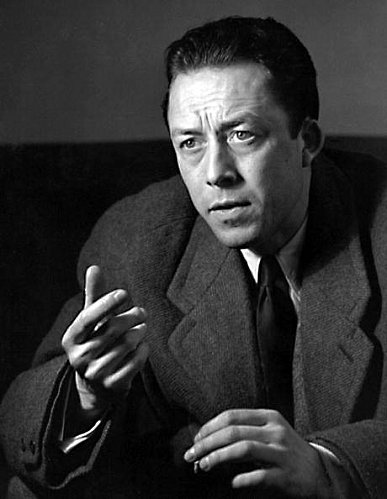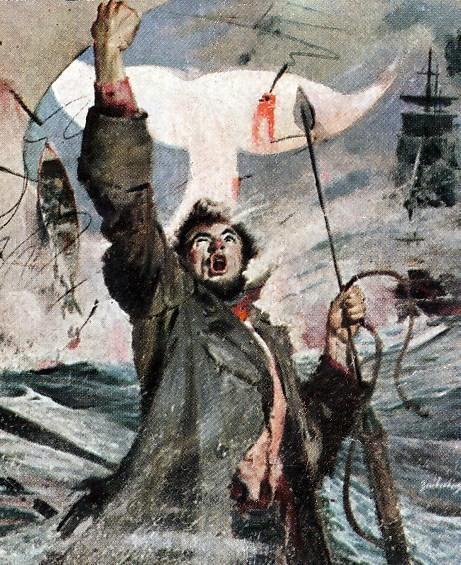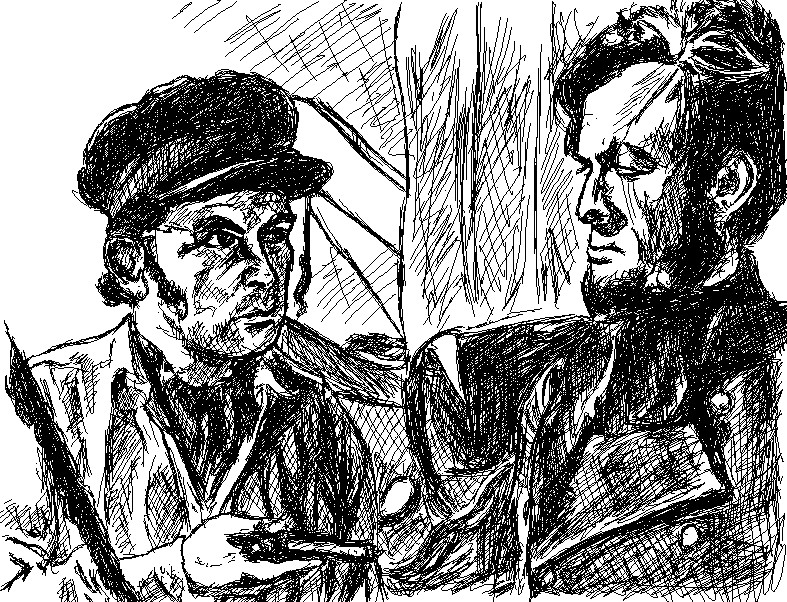A Cruel Man Delighting in Flowers
...the mildness to which men ... had yielded was only half of the intoxication of beauty, while the other half ... was of such surpassing and terrible cruelty—the most cruel of men delights himself with a flower—that beauty ... failed quickly of its effect...
Hermann Broch, The Death of Virgil
Jeremy Davies is made of ink, but don’t dip a feather in him. It tickles. He once painted a fingernail black and no one really noticed. He was disappointed. He’s also an editor, a religious atheist, a liker of strong coffees, a Shakespeare-lover, a political anarchist and someone who rarely has a pen when he needs one. He has been a PhD candidate, a personal trainer, a life model, a bouncer, an infantry soldier and someone who rarely had a pen when he needed one. He has had words published in a variety of places, in a variety of publications, in a variety of forms, in a variety of moments: Canada, Wet Ink, SMS and twelve minutes past three in the afternoon being some of these. His first novel, 'Missing Presumed Undead', will be re-published by Satalyte Publishing in February 2014. A second is on its way.
Moby Dick and the Absurd: A Camusian Reading

It is scarcely easier to describe in a few pages a work that has the tumultuous dimensions of the oceans where it was born than to summarize the Bible or condense Shakespeare.
Albert Camus, ‘Herman Melville’, Lyrical and Critical Essays
I begin with this quote for two reasons: it’s absolutely true, and: I decided to read this book based on my Camus Centenary reading rule of alternating between a Camus-authored book and a Camus-related book. However, this was a long voyage, perhaps appropriately… On the high seas, I was within these pages over three months, due to a distinct lack of pleasure-reading time. But it was worth it. Majesty, pure majesty in every way, and in a way that does make one think of the Old Testament and Shakespeare. I reread sentences, paragraphs, sometimes whole pages, just for the sheer pleasure of the words, how they sounded in my head, how they sounded out loud, how they ‘meant’ to me, how they ‘meant’ to my ideas. Due to the sheer magnitude of this book, I am happy to limit my response here to a very Camus-based reading, and look at it through the prism of his ideas. Otherwise, I could be caught up for another three months or so just writing a review.

In the same short essay, Camus goes on to say that the book represents…
...one of the most overwhelming myths ever invented on the subject of the struggle of man against evil, depicting the irresistible logic that finally leads the just man to take up arms first against creation and the creator, then against his fellows and against himself.

So Camus wants us to consider this book as a moral tale, whereby there is a tension between what is ‘good’ or ‘right’ and what is ‘evil’ (not ‘bad’ or ‘wrong’, but ‘evil’), and that through the pursuit of directly struggling against ‘evil’ (not trying to do what’s ‘good’ or ‘right’, but opposing ‘evil’ itself) there is a fall into destructive behaviour, including, finally, self-destruction.
We are introduced to the world of Moby-Dick through a narrator, Ishmael; the pseudo-author who has quite a philosophical bent. He sets up his ideas on humanity and the world he occupies early on, waxing lyrical:
…the meaning of that story of Narcissus, who because he could not grasp the tormenting, mild image he saw in the fountain, plunged into it and was drowned. But that same image, we ourselves see in all rivers and oceans. It is the image of the ungraspable phantom of life; and this is the key to it all.
But it’s too late to make any improvements now. The universe is finished; the copestone is on, and the chips were carted off a million years ago.
There is certainly a bleakness being established here, and a sense of the Absurd, whereby the universe is not providing for us the meaning we desire from it. And already a taste of self-destruction on page three with the mobilizing of the myth of Narcissus in this way. But is there any hope?
But Faith, like a jackal, feeds among the tombs, and even from these dead doubts she gathers her most vital hope.
And the Preacher in the pulpit sets up the idea of ‘evil’, that being something that is purely bad, even on a spiritual plane, something that is inherently against Grand Meaning…
“Jonah did the Almighty’s bidding. And what was that, shipmates? To preach the Truth in the face of Falsehood! That was it!”
and
“Woe to him who would not be true, even though to be false were salvation!”
And while Ishmael is hardly the Bible-thumper, and often expresses an antipathy towards Christian thought, he is very concerned with the idea of Truth and Meaning. He has a kind of Naturalist bent in his thoughts, something Camus also explored in his early work, like in ‘Summer in Algiers’. Ishmael, ever-the ironic reflector, reflects:
But, perhaps, to be true philosophers, we mortals should not be conscious of so living and so striving.
and
It is not down on any map; true places never are.
And eventually comes to a conclusion which echoes the idea of the brokenness of the human condition in the Absurd:
…and Heaven have mercy on us all—Presbyterians and Pagans alike—for we are all somehow dreadfully cracked about the head, and sadly need mending.
Then we are introduced to Ahab, who is the real protagonist, slowly. He’s a ghost for quite some time. Just stories are told, as if he is some kind of mythic figure, the man who will be true, even if to be false would mean salvation, the man who is mad enough to fight something that is un-fightable, who demands too much. He becomes no longer human, a superhuman? A god? Which is of course too much.
He’s a grand, ungodly, god-like man, Captain Ahab…
But there is something left in him.
No, no, my lad; stricken, blasted, if he be, Ahab has his humanities.
Finally, he emerges, but only days after the Pequod has left harbour, and they are well away from land.
…but moody stricken Ahab stood before them with a crucifixion in his face; in all the nameless regal overbearing dignity of some mighty woe.
And, of course, the antagonist, the white whale, Moby Dick. He too is told about through stories, and emerges physically only much later. Starbuck and Stubb play pivotal roles in the Camusian reading of this book: Starbuck is reason, Stubb is sans-reason; Starbuck is the humanist and for humanity and unity and brotherhood, Stubb is the nihilist, for the pursuit of whatever he can get from this meaningless void of the universe. Early on, Starbuck is made uncomfortable by Ahab’s quest, Stubb is only uncomfortable by how is personally treated, but works through that. In arguing with Starbuck, Ahab sets out his model of the Whale, it’s Meaning:
“All visible objects, man, are but as pasteboard masks. … If man will strike, strike through the mask! How can the prisoner reach outside except by thrusting through the wall? To me, the white whale is that wall, shoved near to me. Sometimes I think there’s naught beyond. But ’tis enough. He tasks me; he heaps me; I see in him outrageous strength, with an inscrutable malice sinewing it. That inscrutable thing is chiefly what I hate.”

So here is the ‘evil’, and the ‘evil’ is established with a certain Platonic Truth/Forms sort of flare.
…all evil, to crazy Ahab, were visibly personified and made practically assailable in Moby Dick.
So is he crazy to think that Moby Dick is ‘all evil … visibly personified’? Or is he crazy to think that such a thing, even if it was, could ever be ‘practically assailable’? Both, would be my Absurd suggestion. Ishmael thinks differently:
God help thee, old man…
he worries
…thy thoughts have created a creature in thee; and he whose intense thinking thus makes him a Prometheus; a vulture feeds upon his heart for ever; that vulture the very creature he creates.
But this is previous to him whaling. The more he whales, the more Ishmael seems to almost disappear into the story. He is hardly even present in the Epilogue as the survivor. Is it him? If it is him, he does not sound the same.
We find in them [Melville’s oeuvre] revolt and acceptance, unconquerable and endless love, the passion for beauty, language of the highest order—in short, genius.
Albert Camus, ‘Herman Melville’, Lyrical and Critical Essays

Ishmael turns savage, and rebel.
I myself am a savage, owning no allegiance but to the King of the Cannibals; and ready at any moment to rebel against him.
And herein, he begins to establish the patterning of the Camusian Absurd Hero; but, unlike Ahab, he sees in the whale (the whale generally, not the White One necessarily…) the very model of this.
Oh man! admire and model thyself after the whale! … Do thou, too, live in this world without being of it.
and
…see the omniscient gods oblivious of suffering man; and man, though idiotic, and knowing not what he does, yet full of the sweet things of love and gratitude
And Ahab, in response to the ‘omens’ of destruction as he nears the end of the quest, spits at them, in a very Macbethian way.
“I now know thee, thou clean spirit, and I now know that thy right worship is defiance.”

This is a different variety of rebellion though to Ishmael’s. It is the rebellion of the hero who is aware but refuses. Ahab’s madness begins to be sullied by fraternal thoughts, interestingly brought on through the psychologically damaged Pip, ‘like curing like’; but through this Ahab begins to question himself and his relentless pursuit of the whale, the wall between him and Truth. Is it worth it. He begins to recognise the roles Stubb and Starbuck are playing:
Ye two are the opposite poles of one thing; Starbuck is Stubb reversed, and Stubb is Starbuck; and ye two are all mankind.
And he begins to favour the Starbuckian idea of mesure, eschewing the Stubbian All-or-Nothing zeal when he is rallying the men for the attack on the White Whale:
”D’ye feel brave men, brave?”
“As fearless fire,” cried Stubb.
“and as mechanical,” muttered Ahab.
Despite Starbuck’s temptation to murder Ahab—and, in fact, maybe because of it—under Starbuck’s influence he is almost ready to abandon the quest…
But, in the end, Ahab has come too far. Starbuck is not enough. He collapses, a little like how Hamlet collapses when he considers the fate of man and the fall of a sparrow:
“Ahab is forever Ahab, man. This whole act’s immutably decreed. ’Twas rehearsed by thee and me a billion years before this ocean called. Fool! I am the Fates Lieutenant; I act under orders.”
And he acknowledges his collapse and failure in the face of the Absurd. Starbuck, like Stubb, isn’t even aware of the Absurd, as Ahab is, but Ahab’s failure is his inability to live in the tension, as Ishmael has.
“Close! Stand close to me, Starbuck; let me look into a human eye; it is better than to gaze into sea or sky; better than to gaze upon God.”
…or Truth. Ahab is aware enough to acknowledge that it is the humanist/Starbuckian that is missing for him.
“…but Ahab never thinks; he only feels, feels, feels.”
He tries to save Starbuck, but he will not save himself. He demands the annihilation of Truth. And his final act before the final chase is an act of Starbuckian fraternity to Starbuck.
I am old; shake hands with me, man.
And he dies the death of a criminal. The Truth sentences him, as he knew it would. As it had to. Otherwise, it would stop being.
To separate myself very briefly from the Camusian reading, I wanted to express my thrill and appreciation for the two chapters that quite obviously paid homage to the exchanges between Hamlet and the Gravedigger, with Ahab and the Carpenter stepping forward for the roles. I'll finish by briefly quoting a part of one of these, which uses some neat irony and heavy punning to play with a kind of Camusian principle that I haven't really touched on here…
[Carpenter]“Faith, sir, I’ve——”
[Ahab]“Faith? What’s that?”
[Carpenter]“Why, faith, sir, it’s only a sort of exclamation-like—that’s all, sir.”
[Ahab]“Um, um; go on.”
 1
1
 1
1






